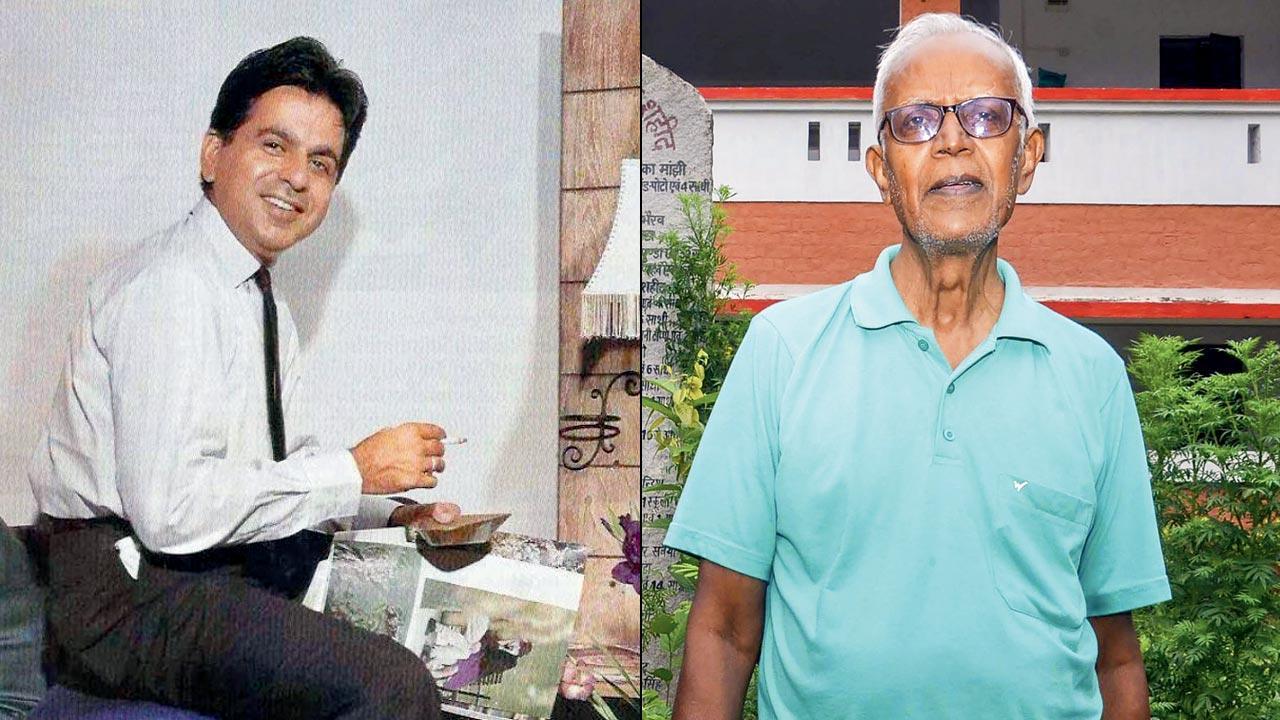With the passing of the popular culture icon and the Jesuit priest, who embodied the ideas of equality and dignity, the lights of the Republic are dimming, turning India into a shadow of what it had wanted to be

Bollywood legend Dilip Kumar, and Fr Stan Swamy died last week
The lights illuminating the constitutional idea of India are going out one by one. Two such lights were extinguished last week—Jesuit priest and activist Stan Swamy and film-star and popular culture icon Dilip Kumar. They took flight from an India evolving in contrast to the vision of its founding fathers, an India bristling with sectarian hate, riven by growing inequalities, and ruled by those who insist on steamrolling dissent. In mourning their death, we subliminally mourn the subversion of the idea of India.
ADVERTISEMENT
Dilip Kumar was born Yousuf Khan. His first box office hit was Jugnu, in 1947, the year in which India won Independence and was also partitioned. As his popularity grew, Kumar became a clinching argument for India’s multiculturalism, its religious inclusiveness. Since Muslims enjoyed the same citizenship rights as Hindus, they did not have to leave secular India for Islamic Pakistan.
There were some who urged Kumar’s father to return to Peshawar, where their extended family owned property and lived. In his autobiography, The Substance and The Shadow, Kumar quotes his father saying, “We will remain in India and die in India.” And to think, they had been in Mumbai for just a few years!
Every individual has multiple identities. Some we are born with; others we consciously adopt and cultivate. This is evident from an episode in the life of Yousuf Khan before he became Dilip Kumar. At Pune’s Army Club, where he worked as an assistant manager, its members asked Kumar to explain why India insisted on independence from the British in the midst of World War II. Kumar’s speech was lustily cheered.
But the same evening he was arrested for voicing anti-British views. He was taken to Yerawada Jail, where Sardar Vallabhbhai Patel was incarcerated with other “Gandhiwalas” who were on hunger strike. Kumar, too, did not eat until he was bailed out the following morning by an Army major. His pride at his cameo in the national movement seeps through in his autobiography, even though retold tongue-in-cheek.
For all his superstar status, his house was raided in the 1960s, to verify whether he was using a transmitter to secretly communicate with the Pakistanis. Kumar does not refer to this incident in The Substance, perhaps preferring not to dwell, as was his nature, on events belying the idea of India. But he did become perturbed at the Hindutva brigade frequently targeting him in the 1990s for his religious identity. The Shiv Sena, for instance, insisted he must return the highest civilian award Pakistan had bestowed on him.
Perhaps his own vulnerability as a Muslim in a changing India inspired him to work for removing the backwardness of his community. Shabbir Ahmad Ansari, founder president of the All Indian Muslim Other Backward Classes Organisation, and Dr Zahir Kazi, president of Anjuman-I-Islam, remember how they and Hasan Kamal, an Urdu columnist, persuaded Kumar to advocate reservation for OBC Muslims. Kumar was reluctant because he said Islam did not recognise caste. They said the OBC reservation had an occupational basis. Caste is class, they argued.
During his acting days, Kumar would often recall experiences from his life to emote before the camera. The discussion on reservation had Kumar narrate his meeting with Dr BR Ambedkar at Subhedari Guest House, Aurangabad, where he had gone for a shoot. Kumar said Ambedkar had advised him to work for the marginalised groups among the Muslims. On another day, he reminisced about the dinner the captain of the Khalsa College football team, of which Kumar had been a member, had hosted for the players. Only Kumar turned up. The reason? The captain was a Mahar with whom caste Hindus would not eat.
His subconscious was nudging him to walk the untrodden path. Kumar joined the OBC Muslim movement, played a role in persuading the State government to expand the number of Muslim castes on the OBC list, and toured Maharashtra to encourage the community to take to education for utilising the opportunity of reservation. This he continued to do until ill-health confined him to home. His fading memory insulated him from watching the idea of India slowly turn into a horrific caricature from 2014.
Swamy’s refusal to reconcile with this horrific caricature cost him his life. Unlike Kumar, Swamy lived a spartan existence in Jharkhand, did not have powerful friends, and was largely unknown to India until the National Investigation Agency raided his house in 2018 and then arrested him in 2020. For the Adivasis, though, Swamy was a hero, their protector against the state evicting them to give their land to corporates, and their hope of liberation from prison into which they had been tossed for protesting. Swamy embodied the ideas of equality and dignity.
The Jesuit priest was booked under the Unlawful Activities Prevention Act; his bail pleas were repeatedly rejected, and access to medical care denied to him for a long time. Swamy died because the mutilated idea of India has also been denuded of compassion. In mourning him and Dilip Kumar, we realise the lights of the Republic are dimming, turning India into a shadow of what it had wanted to be. And the caricaturist preens.
The writer is a senior journalist. Send your feedback to [email protected]
The views expressed in this column are the individual’s and don’t represent those of the paper.
 Subscribe today by clicking the link and stay updated with the latest news!" Click here!
Subscribe today by clicking the link and stay updated with the latest news!" Click here!






